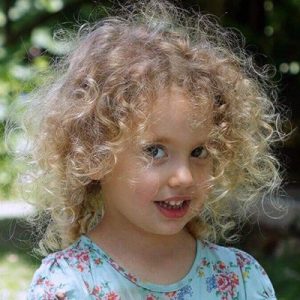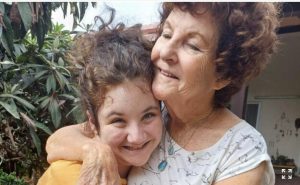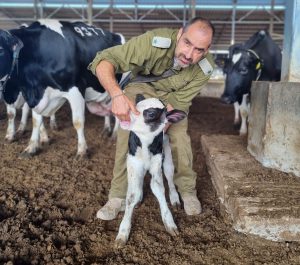Reduced Inequalities


SDG 10- Breaking Glass Ceilings for the Ultra Orthodox in Israel
There are about 830,000 Ultra-Orthodox Jews living in Israel, which comprises about 11% of the total population, and nearly 59% of Ultra-Orthodox families live below the poverty line, for numerous reasons. With a strong emphasis placed on Torah study, many Ultra-Orthodox men never receive the education or skills necessary to get a job outside of the Haredi community. Many never even seek employment — only 51% of Ultra-Orthodox men participate in Israel’s workforce, while 70.8% of Ultra-Orthodox women work. Ultra-Orthodox women, often the only breadwinners, rarely earn enough to support their large families.
Several new programs, however, are attempting to turn this reality on its head. The Kivun Center was established in 2014 with the cooperation of the Ministry of the Economy and the Jerusalem Municipality. The center provides professional and personal guidance to Ultra-Orthodox Jews, including advice on finding suitable workplaces, with the ultimate goal of having their clients earn a living in a manner that suits the lifestyle of the Ultra-Orthodox. Services offered by the center include guidance, training, placement, and employer relations. To date the center has successfully placed nearly 5,000 Ultra-Orthodox individuals in respectable livelihoods throughout Jerusalem.
The Government of Israel, in collaboration with the Joint Distribution Committee (JDC-Tevet), aims aims to generate sustainable change in the Israeli labor force by cultivating equal opportunities through workforce participation and career advancement. Ultimately, they believe, this will strengthen the social and economic fabric of Israel. With regard to the Ultra-Orthodox sector, JDC-TEVET programs encourage employment and illustrate how Torah study and work can co-exist. Programs also train Ultra-Orthodox for the Israeli workplace, offer pathways towards higher education and help women advance their careers.


In the world of high-tech, only 3% of employees are Ultra-Orthodox. Of the 9,100 Ultra-Orthodox employed in high tech, 5,200 are women. In a society where the women are the main breadwinners, this number could stand to be higher. Recently, the Haredi (Ultra-Orthodox) Institute for Public Affairs, together with several leading high-tech companies in Israel announced the founding of a high-tech forum aimed at improving integration of Ultra-Orthodox in in the industry, particularly women. The forum is now working with the Ministry of Labor, Social Affairs, and Social Services; parties in the high-tech industry, and the seminaries themselves to devise a comprehensive reform of the study programs offered to Ultra-Orthodox women. In a potentially win-win situation that would both improve the employment status of Ultra-Orthodox women and help solve the shortage of 15,000 engineers in the high-tech industry, the forum hopes to train 2,500 Ultra-Orthodox women annually in computer science in seminaries and integrate them into high levels of the industry.
The Israeli Innovation Authority, for its part, has initiated a new incentive program called Diverse Startups, to encourage investment in early stage companies owned by minority or Ultra-Orthodox entrepreneurs. The program will grant 75% of the project’s approved budget in the first year and 70% in the second year to companies that at least 33% of their shares are owned by an entrepreneur from the Ultra-Orthodox or minorities sector. Companies can submit a further request under the Early Stage Companies Standard Program up to a maximum total grant of NIS 5 million during a cumulative period of up to two years. They will also be given the opportunity to raise supplementary financing up to six months after the date of approval.
The Ultra-Orthodox are a very insular community and have devised their own system of caring for and protecting their members. The “gemach” — an acronym for the term “gemilut chasadim” (acts of lovingkindness, in Hebrew) — is something of a Jewish lending society, where those in need of anything from pacifiers to wedding gowns can borrow them with dignity from different points around the country. Most of the gemachim are ad-hoc operations run out of different homes, offering various and sundry items, such as pans and utensils for making Yerushalmi kugel, a traditional Shabbat dish. Even Israel’s most well-known lender of medical supplies – Yad Sarah – began as a humble gemach. Today Yad Sarah operates 103 equipment-lending branches throughout Israel. Altogether, the locations stock approximately 300,000 items and 300 types of medical and rehabilitative equipment, including wheelchairs, crutches, beds and oxygen tanks. Yad Sarah lends their equipment not only to the Ultra-Orthodox, but to all Israeli citizens, regardless of denomination, and has further helped establish equipment-lending centers and repair workshops in Angola, Cameroon, El Savador, Russia, South Africa and Jordan.
The Ultra-Orthodox themselves, a very insular community, have devised their own system of caring for and protecting their members. The “gemach” — an acronym for the term “gemilut chasadim” (acts of lovingkindness, in Hebrew) — is something of a Jewish lending society, where those in need of anything from pacifiers to wedding gowns can borrow them with dignity from different points around the country. Most of the gemachim are ad-hoc operations run out of different homes, offering various and sundry items, such as pans and utensils for making Yerushalmi kugel, a traditional Shabbat dish. Even Israel’s most well-known lender of medical supplies – Yad Sarah – began as a humble gemach. Today Yad Sarah operates 103 equipment-lending branches throughout Israel. Altogether, the locations stock approximately 300,000 items and 300 types of medical and rehabilitative equipment, including wheelchairs, crutches, beds and oxygen tanks. Yad Sarah lends their equipment not only to the Ultra-Orthodox, but to all Israeli citizens, regardless of denomination, and has further helped establish equipment-lending centers and repair workshops in Angola, Cameroon, El Savador, Russia, South Africa and Jordan.
Gemachs were once simply interest-free lending funds for members of the Ultra-Orthodox community who needed some advance funds. Though for the most part they have taken a different turn, there still exist gemachs that offer financial loans. Recently the Knesset passed the Gemach Law, which will regulate Gemachim as interest-free financial institutions for deposit and credit, authorized by the State and subject to government supervision. The law, “is an unprecedented example of applying civic policy to a communal institution while genuinely taking into consideration the special characteristics of that specific population as well as the welfare of society at large.”
These seemingly small developments, among others, will no doubt have a tremendous impact on the advancement of equal opportunities for the Ultra-Orthodox community in Israel.
Related articles


SDG 10 – World Children’s Day in Israel
Reduced Inequalities “For every child, every right” – so goes the UN’s theme for this year’s World Children’s Day (November 20). Does that also hold for


SDG 10 – Surviving War with Disabilities
Reduced Inequalities More than 1.6 million Israelis (20% of the population) are recognized as persons with disabilities. That was before the current war; hundreds more


SDG 10 – Civil Society Steps Up
Reduced Inequalities It’s no secret that Israel’s civil society organizations are among the most robust in the world. Now operating in the shadow of war,


















